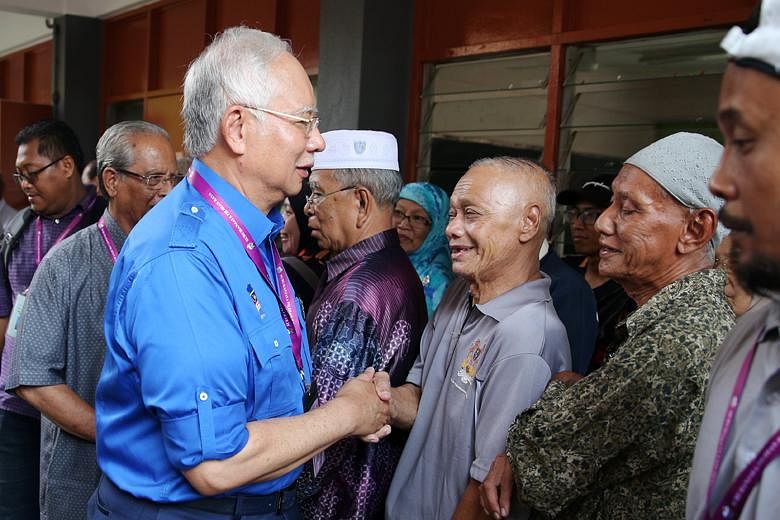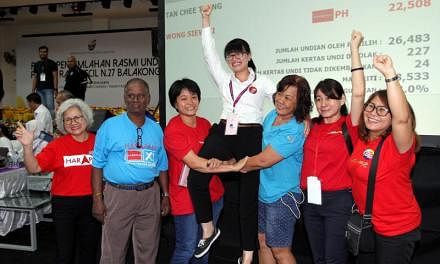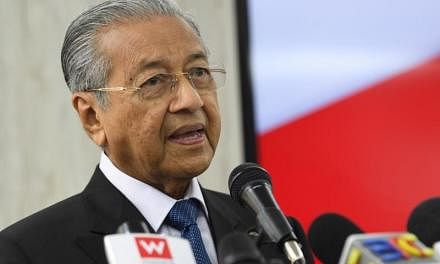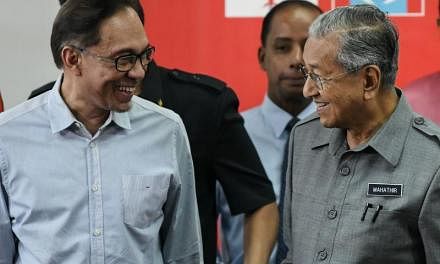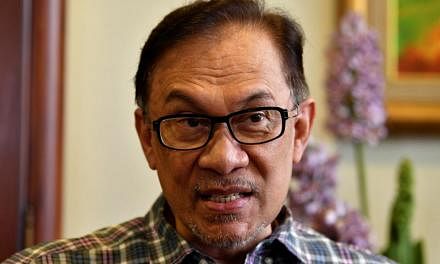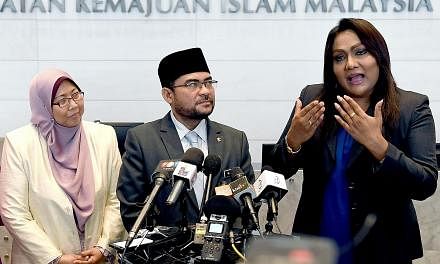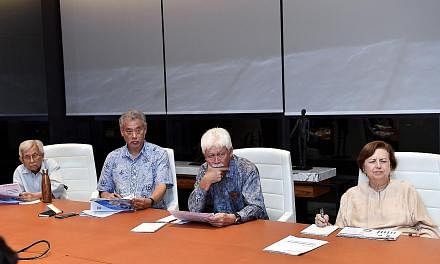PETALING JAYA (THE STAR/ASIA NEWS NETWORK) - Malaysian Prime Minister Datuk Seri Najib Razak has slammed viral WhatsApp messages about voters facing issues with voting as fake news.
"They are so desperate to spread these accusations and lies, it is the same story but in different locations," Najib said on his Facebook on Wednesday (May 9) afternoon as polling went underway.
The viral message alleged that several voters were given ballot papers without the Election Commission (EC) official stamp, making the votes invalid.
It then questioned how many voter ballots had involuntarily become spoilt votes as they might not have noticed the missing EC stamp.
Najib highlighted that this exact same message was being passed around with indications that it had happened in different locations including Taman Desa, Kuala Lumpur and Johor Baru.
Despite purportedly being from different people, the wording in these messages is identical.
A flurry of WhatsApp messages and Facebook posts have gone viral with voters sharing their experiences, good and bad, on polling today.
To allay concerns, the EC has said that ballot papers that don't have their official chop can still be considered as valid.
At a press conference on Wednesday, EC chairman Tan Sri Hashim Abdullah said that the presiding officer and the polling agents can use their discretion to allow such a ballot to be counted.
"The ballot papers are supposed to be chopped but there could be instances where they missed it because they forgot to do so," he said.
"Even in such instances, the presiding officer and the party agents can use their discretion to count them if they are satisfied that the papers are satisfied that has been given out (kertas undi dikeluarkan secara sah) and it was only the mistake of the EC staff at the particular channel (saluran)," he added.
"Please don't be fooled by these messages. The process is monitored by all the parties that have a stake. Some people are trying to cause panic and create distrust towards the Election Commission," Hashim said.
On the voters who cast their ballots in the wrong box (mixed up between parliament and state), Hashim said that during the counting process, the ballots could be segregated accordingly under the supervision of the presiding officer and the party agents.
As for the postal votes that did not reach their intended addresses, Hashim said the EC would investigate, and that for other alleged cases of wrongdoing involving the voting process, voters could lodge police reports on the matter.
Meanwhile, Inspector-General of Police Tan Sri Fuzi Haru said police teams were monitoring the situation on the spread of fake news during the election period.
"We are aware of fake news and we have the teams and task forces responsible who are monitoring the reports. The public has to verify what is real and what is fake," he said after a walkabout at the SK Bangsar voting centre.
Separately, a 41-year-old storekeeper has lodged a police report after discovering that his name was already crossed out from the list at his polling station.
Goh Por Cheong, a third-time voter at Air Putih, said he was unable to vote because the list showed that he had already exercised his rights at the polling station in SRJKC Kong Min Pusat.
"I showed the officer both of my hands, which were unstained by the indelible ink, to prove that I have not voted yet.
"However, they said they could not issue the ballot to me as my name has been crossed out," he said at the Air Putih DAP service centre.
DAP secretary-general Lim Guan Eng urged the EC to investigate the matter as someone could have used Goh's identity to cast ballots.
"It denied him the right entitled to him as a citizen," he said.
